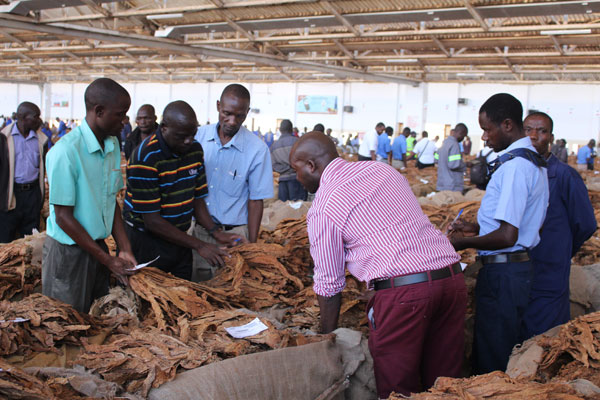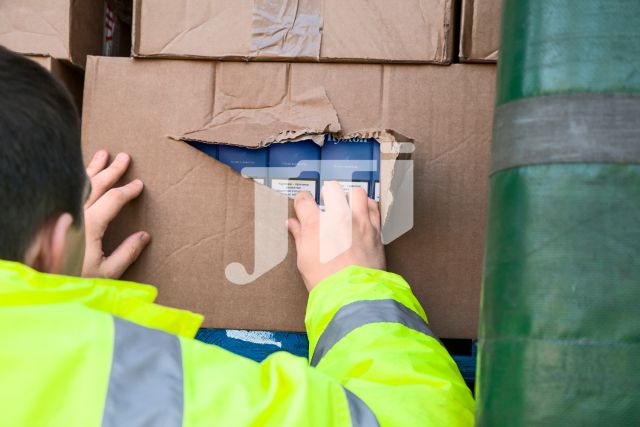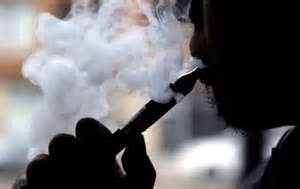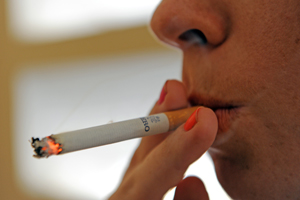People will be disappointed if they try to buy tobacco products in the US town of Greenwood, Nebraska, according to a story by Kevin Cole for the Omaha World Herald.
A gas station/convenience store closed about four months ago, leaving the Cass County town of about 680 people without a tobacco retail outlet, village board member Kevin Gerlach said.
And the Uptown Saloon, a bar and restaurant, quit selling tobacco products several years ago, according to a woman who answered the phone at the business.
“It’s just the way the cards fell,” Gerlach said. “If someone wants to buy tobacco, there are gas stations about three miles outside of town on the local interchange.”
Last summer, the board made the village park a tobacco-free space and now, if a business wanted to start selling tobacco in town, it would have to get approval from the board.
“I’m a third-generation Greenwood resident, and I think [approval] would be pretty unlikely,” Gerlach said. “In the town’s heyday, back in the 1950s, there were five bars and two or three stores that all sold tobacco. Those days are over.”
Meanwhile, Autumn Burns, of Tobacco Education and Advocacy of the Midlands, said Greenwood was the first town she had heard of in Nebraska without any tobacco sales. She applauded the town’s decision to make its park tobacco-free because it’s “a great role model” for the community’s youth.
“I think it’s really inspiring,” Burns said. “They’re showing small communities can take the lead making tobacco-free spaces. I’m also impressed with Cass County as a whole because Greenwood, Elmwood, Weeping Water and Murray have all implemented tobacco-free parks.”
Category: People

I’d walk three miles …

Tasmania is smoking
Tobacco use in Tasmania is higher than in any other Australian state or territory, according to a story by Erin Cooper for the Australian Broadcasting Corporation citing results from the National Wastewater Drug Monitoring Program.
The program appears to measure nicotine because the story said also that ‘… Tasmania still leads the nation in smoking, following nicotine usage rates that exceeded the national average in the previous two’.
The program measures also illicit drugs but, overall, nicotine and alcohol were said to have remained the substances – of those measured – that were consumed in the highest quantities.
The annual survey uses wastewater samples from water treatment plants across Australia to measure national drug consumption.
On this occasion, sampling was conducted in October and December 2017 at 45 plants, which represents about 50 percent of the population.
Nationally, ice (crystal methamphetamine) remained the most consumed illicit drug and the average national consumption has increased.
The Minister for Law Enforcement and Cyber Security Angus Taylor was quoted as saying that ice consumption was a stand-out problem.
“This continues to be a significant problem, because it was minimal only a few short years ago.”
Factory shut down
A cigarette-manufacturing factory in the Tbong Khmum province of Cambodia was ordered on Tuesday to cease production because it was not including health warnings on its packs, according to a story in The Khmer Times.
Interior Ministry representatives together with court and local officials, shut down production and seized more than 1,600 non-compliant packs.
Hak Siek Lim, a Tbong Khmum Provincial Court spokesman, said production would not be allowed to restart until the company operating the factory, CTK Co. Ltd, was able to fulfil its obligations.
Dr. Mom Kong, executive director of the Cambodia Movement for Health, which pushed for the health warnings on cigarette packs, said that compliance was better among companies that sold cigarettes domestically and overseas.
Companies that sold mostly on the domestic market were more reluctant to warn the public about the dangers of smoking.
According to a National Center for Health Promotion report published last year, there were 1.68 million cigarette smokers in Cambodia.
In June, Health Minister Mam Bunheng said tobacco use was an obstacle to achieving the UN Sustainable Development Goals, since it harmed public health, the economy and the environment.
“The Health Ministry wants to introduce a ban on smoking at work and in public places, prohibit tobacco advertising, and stop sponsorship and promotions by tobacco manufacturers,” he said.
Bunheng added that Ministry officials wanted also to strengthen warnings and images printed on tobacco product packaging and expand public health campaigns discouraging smoking.
Hoping for better prices
Malawi’s all-types tobacco production is estimated to have dropped by 12 percent this season, according to a story on Journalducameroun.com.
The country is thought to have produced 149 million kg during the 2017/18 production season, down from 171 million kg during the 2016/17 season.
The Tobacco Control Commission’s CEO, Kayisi Sadala, said on Wednesday that growers had not produced enough tobacco this season to meet buyers’ demand.
He attributed the production decline to natural causes. “The country faced natural disasters like prolonged dry spells in the southern part and erratic rains in the central region where tobacco is largely produced, hence the output drop,” Sadala was quoted as saying.
The upside of this is that the Commission is optimistic that the forces of demand and supply will lead to a smooth marketing season.
There was hope that this year’s leaf would attract better prices than those of previous seasons, when supply was high and demand was low, Sadala said.
The 2017/18 tobacco marketing season is expected to open on April 11, with farmers due to deliver their crops to the Kanengo and Lilongwe auction floors.
Illegal trade doubled
The consumption of illicit cigarettes in Thailand more than doubled between the fourth quarter of 2016 and the fourth quarter of 2017, according to a story in The Nation citing the results of a study conducted on behalf of Philip Morris (Thailand).
The increase was said to have implied an annual cost to the country of at least Bt3.6 billion in ‘lost’ tax revenue.
The study, conducted by Nielsen, showed that non-domestic cigarettes, or cigarettes without a Thai tax stamp, captured 6.6 percent of the market in Q4 2017, up from 2.9 percent in Q4 2016.
The study of 10,000 discarded cigarette packs found the problem was most widespread in the south of the country, with the provincial incidence at 76.6 percent in Satun, 67 percent in Songkhla, and 40 percent in Patthalung, said Pongsathorn Ansusinha, PMT’s director of corporate affairs.
Two cigarette brands made up about half of the non-domestic packs, neither of which was registered with the Excise Department.
Pongsathorn said that after the excise tax reform in September 2017, PMT had expected a significant reduction in licit cigarette consumption because some smokers could no longer afford to buy licit cigarettes. They would either quit smoking or turn to the roll-your-own tobacco or illicit cigarettes.
“By using the 6.6 percent rate, we estimate the consumption of non-tax-paid cigarettes in Thailand could reach about 100 million packs,” he said. “This could mean a loss of excise revenue of at least Bt3.6 billion per year, assuming excise tax of Bt36 per pack in 2018.”
And Pongsathorn warned that the loss could rise to as much as Bt5 billion a year by 2020 because the excise burden was set to rise again in October 2019.
Film festival deadline near
The organizers of the Global Forum on Nicotine’s (GFN) first film festival have announced that the deadline for the submission of entries is April 16.
The festival, which is focused on tobacco harm reduction, will run alongside the GFN’s fifth annual conference, GFN18.
Entries must be submitted to filmfest@gfn.net.co with either a secure Vimeo or YouTube link.
The festival is being organised in association with Attention Era Media, the makers of A Billion Lives, which was shown at a previous GFN event.
Announcing the festival earlier this year, Aaron Biebert, the director of A Billion Lives, who will curate the festival, said that reversing propaganda and fear tactics would take more than a single movie. “It will take a community of educators, leaders, and influencers who are educated and excited,” he said. “A film festival focused on tobacco harm reduction will make a huge impact by inspiring filmmakers to take up the cause and help get the truth in front of the public. I am delighted to be leading this effort and believe that together we can make a difference.”
The festival will feature films up to 15 minutes long.
The makers of the films chosen for inclusion will be invited to attend GFN18 and the organisers hope to have short Q&A sessions with them following the screenings, which will take place within the conference venue and will be open to everyone attending the conference.
The conference is scheduled to be held at the Marriott Hotel, Warsaw, Poland, on June 14-16.
The festival will take place on June 15 and 16, with each of the entries being eligible for the ‘Best Picture’ award, to be decided by a jury, chaired by Biebert, who will also present the award during the closing session of the GFN.
Agitation threat in Pakistan
A tobacco-grower representative has asked the Pakistan government to provide incentives and lower taxes in respect of tobacco production, according to a story by Muhammad Riaz Mayar for The News.
Niamatullah Shah Roghani, vice-president of Anjuman-e-Kashtkaran Khyber Pakhtunkhwa, was quoted as saying that tobacco contributed to the federal exchequer more than Rs114 billion a year in sales tax and federal excise duty (FED).
However, he said that while tobacco growing could provide a good income, tax increases had made it almost impossible for poor farmers to continue with tobacco cultivation.
Niamatullah added that the government had imposed FED of Rs10.00, an advance withholding tax of Rs8.80, a federal government cess of Rs3.67, and a provincial excise cess of Rs5.00 on each kg of leaf tobacco.
All these taxes were deducted by tobacco companies from the prices paid to growers.
“This was the reason that in 2017 there was no competition in the market and tobacco prices were even below the production cost,” he said.
“The government allowed the companies to bring down prices of cigarettes and this was reason the farmers didn’t get a good price which resulted in billions of rupees loss to them, besides reduction in price of third slab’s cigarettes,” he added.
Niamatullah demanded that the five percent advance withholding tax, the FED on tobacco leaf of Rs10.00 per kg and the federal government cess of Rs3.67 per kg on leaf tobacco be included in the federal excise duty on cigarette production.
He said that tobacco farmers in Swabi, Mardan, Charsadda, Nowshera, Buner, Swat and Mansehra had been suffering due to the apathy of the government.
Either the government met their demands, he added, or else they would start agitation all over the province.
Ghana decries singles sales
The Vision for Alternative Development (VALD), a non-governmental organization has called on Ghana’s Ministry of Health (MoH) and the Food and Drugs Authority (FDA) to ban the sale of single cigarettes with immediate effect, according to a Ghana News Agency story.
It reportedly said that the sale of single cigarettes had encouraged young people to smoke, and that smoking was destroying their lives through disease.
Labram Musah, the programs director of VALD, made the call for the ban at a news conference in Accra held to highlight the results of the survey conducted by VALD in collaboration with the Africa Tobacco Control Alliance (ATCA) in 10 capital cities of Africa: Sale of Single Stick of Cigarette to Kids.
The survey was conducted also in Burkina Faso, Cameroon, Chad, Cote d’Ivoire, Kenya, Niger, Nigeria, Togo and Uganda.
Musah said the sale of single cigarettes was problematic because it made smoking more affordable to young people and others with limited resources.
“Single stick cigarette sale facilitates experimentation among the youth who have not yet become regular smokers,” he said. “This is one of the major reasons the tobacco industry vehemently opposes sale of cigarettes in a pack of 20 sticks.”
Meanwhile, Musah urged the MoH and FDA and all relevant authorities to monitor British America Tobacco and Philip Morris International to prevent them from supplying free promotional materials to tobacco retailers in order to create recognition of their brands and encourage the sale of their products.
He said the authorities should enforce the ban on all forms of tobacco advertising, promotion and sponsorship, and that this should include any promotional materials related to single sticks.
And he urged the authorities to ensure that cigarettes were not sold close to educational institutions, hospitals, children’s playgrounds and places where children are cared for.
Smokers shut out
The Malaysian Trades Union Congress (MTUC) has criticized the growing tendency among employers to reject job applicants who are habitual smokers, according to a story in The Free Malaysia Today (FMT).
Employers should be concerned only with a person’s ability to work, MTUC secretary-general J Solomon was said to have told FMT.
“Smoking is not illegal, and companies cannot dictate the personal choices of employees,” he said.
The Malaysian Employers Federation (MEF) director Shamsuddin Bardan agreed, saying such a hiring policy would be discriminatory unless the nature of the job required abstention from smoking.
“Unless non-smoking is critical to a business, such as a health or food business, then it is discrimination,” he said.
The FMT story said that a growing number of companies, especially in foreign countries, were adding ‘non-smoking’ as a job requirement, with dozens of Australian companies doing so.
And checks by FMT had found that several Malaysian companies had begun to follow suit.
Molly Cheah, president of the Malaysian Council for Tobacco Control, said she supported such a policy.
“More employers should consider this move,” she said. “If you’re an employer, you would want your employees to be healthy.”
But Solomon said smoking was only one of many factors employers needed to consider if they cared about their workers’ health.
“If you want to talk about employees’ health, you must look at it in totality,” he said. “Factors like work stress and the conduciveness of the working environment need to be looked into to see whether they are in line with international safety and health standards.”
However, he said it would be fair to set rules on smoking during working hours. “But make sure it applies across the board,” he said. “If employees aren’t allowed to smoke, then neither should the company’s CEO. Just like a dress code, the rule should apply to everyone.”
Taiwan has e-cig ‘problem’
Taiwan’s Ministry of Health and Welfare reported Sunday new data estimating that more than 52,000 teenagers in Taiwan regularly use electronic cigarettes, according to a story in The Taiwan News citing a Central News Agency report.
A poll administered by the ministry found that e-cigarette use went from 2.0 percent among middle school students and 2.1 percent among high school students in 2013, to 3.7 percent and 4.8 percent respectively in 2015.
The ministry estimates also that there are 100,000 adult – over 18-years-old – e-cigarette smokers in Taiwan.
The ministry was quoted as saying that e-cigarettes were highly addictive and that their long-term effects were not fully understood, something, it added, that posed ‘even more of a risk to young adopters’.
The story did not explain what the e-cigarette risk was being compared with. Even so, the Ministry was said to be demanding immediate attention to this problem.
Taiwan legislators continue to discuss how to regulate and manage e-cigarettes, and even ban them; however, legislation remains pending in the Executive Yuan.










